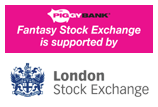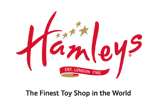 Reach for the Sky... How To Get Onto The Stock Exchange
No, this is not about some cheesy western where the good guys (or bad guys) have pulled out their six-shooters and order their antagonists to put their hands high up over their heads. This is, instead, about an equally tough, ruttin’, shootin’ winner-takes-all-game called “Going Public” – becoming a PLC.
PLC is short for Public Limited Company and, normally, a PLC is a company whose shares can be owned by the general public and bought and sold through a regulated stock exchange, like the London Stock Exchange. This is different from a private ‘limited’ company, whose shares cannot be traded by the public and whose shareholders are usually quite few in number.
 That’s the simple explanation, but of course, as with anything to do with the City, we could fill a book with the complicated version. That’s the simple explanation, but of course, as with anything to do with the City, we could fill a book with the complicated version.
Why do we have public companies as opposed to private ‘limited’ ones?
PLCs are used mainly when the businesses that they run will need the ability to raise large amounts of money from time to time in order to invest in expanding the company.
Shareholders invest in the shares of these companies in order to make money, too. Buying shares when they are low and selling them when they are higher than the price they were bought at, offers shareholders an opportunity to make a profit.
Becoming a PLC can be attractive to the original shareholders of a company, or ‘founders’. The ‘founding’ shareholders like a PLC because it provides them with an opportunity to get others involved in financing the company, rather than relying on their own resources and money. Traditionally, private companies are funded by their shareholders, and, sometimes, even their directors, through personal loans to the company or bank loans.
 In some cases, especially when the company which is to become a PLC is profitable, the founding shareholders can sell part of their shares at the time of going public – the Initial Public Offering or IPO – and can make a lot of money in the process. Mike Ashley, the founder of Sports Direct, made nearly £900 million when his company went public, as an example. In some cases, especially when the company which is to become a PLC is profitable, the founding shareholders can sell part of their shares at the time of going public – the Initial Public Offering or IPO – and can make a lot of money in the process. Mike Ashley, the founder of Sports Direct, made nearly £900 million when his company went public, as an example.
Investors who buy shares at the time of the IPO, or just before it, can also make a lot of money when the company goes public.
‘Going Public’, as it is referred to, is not a simple process. Neither is it cheap. The company has to have solicitors to guide them, accountants to make sure all the accounts reflect what’s happened in the past with the company and what’s going to happen in the future. Brokers need to be taken on to find the investors – people, or companies who will invest their money and become shareholders of the PLC. And then there is the Nomad. A Nomad is the shortened term used for a Nominated Advisor – that is, an advisor who has been especially nominated by one of the
stock exchanges to help companies go public.
As you would expect, each of these ‘professionals’, as they are called, will charge hefty fees, sometimes in the millions of pounds depending on the size of the ‘float’.
A float is another City term for a company going public. As with much in the City, it probably dates back to the days when the City was the centre of shipping and trade and when people used to invest in cargo shipments going all around the world. So, guess what? Their investments would, quite literally, float!
The company sets about writing its Plan for the next three to five years, and, once it has been approved by the team, the company is proposed to the stock exchange. It’s highly unusual to go this far and then be turned down. Once the Exchange agrees to allow the company in or ‘admit’ it, the company is public!
 back back
|






 That’s the simple explanation, but of course, as with anything to do with the City, we could fill a book with the complicated version.
That’s the simple explanation, but of course, as with anything to do with the City, we could fill a book with the complicated version. In some cases, especially when the company which is to become a PLC is profitable, the founding shareholders can sell part of their shares at the time of going public – the Initial Public Offering or IPO – and can make a lot of money in the process. Mike Ashley, the founder of Sports Direct, made nearly £900 million when his company went public, as an example.
In some cases, especially when the company which is to become a PLC is profitable, the founding shareholders can sell part of their shares at the time of going public – the Initial Public Offering or IPO – and can make a lot of money in the process. Mike Ashley, the founder of Sports Direct, made nearly £900 million when his company went public, as an example.






